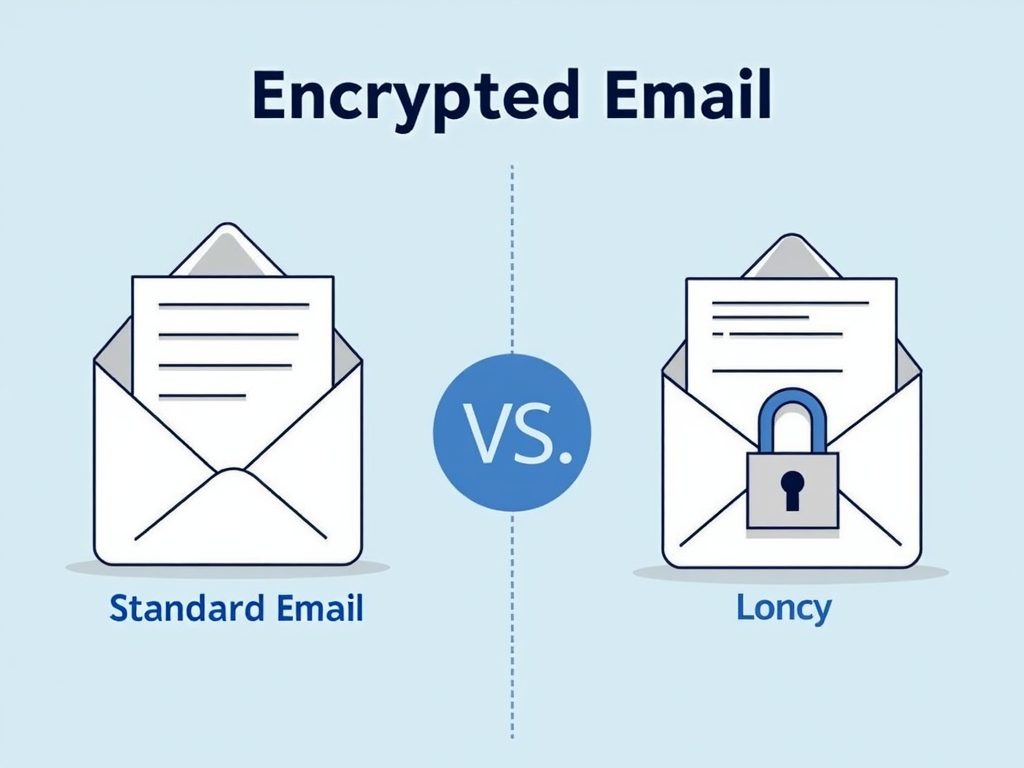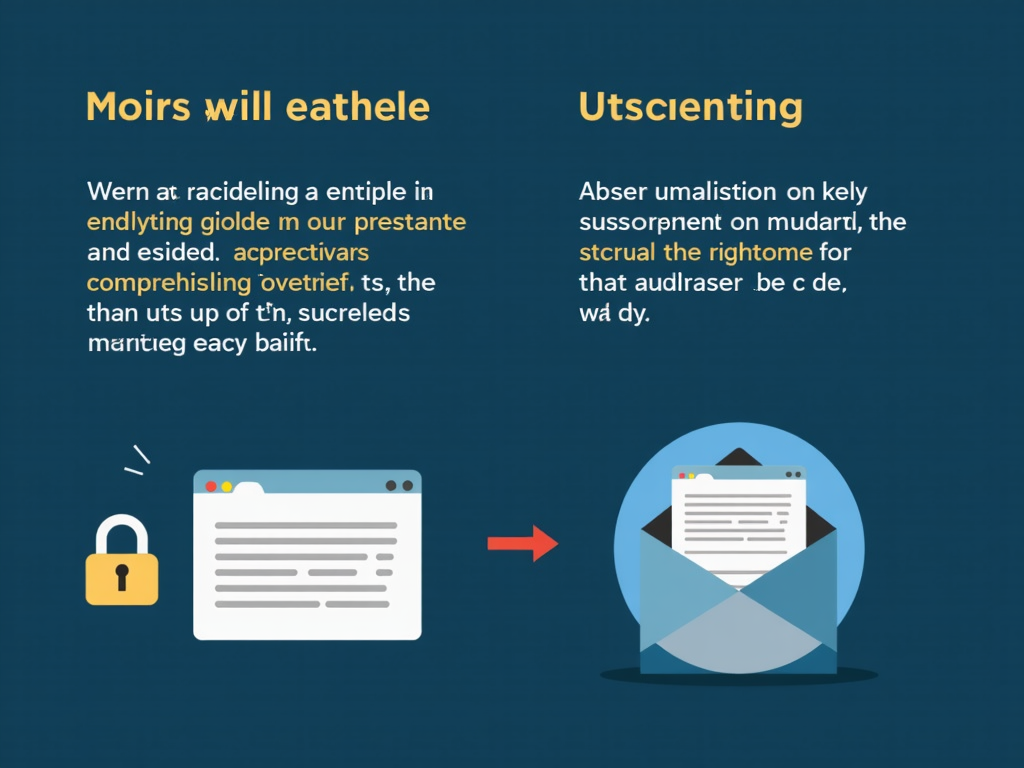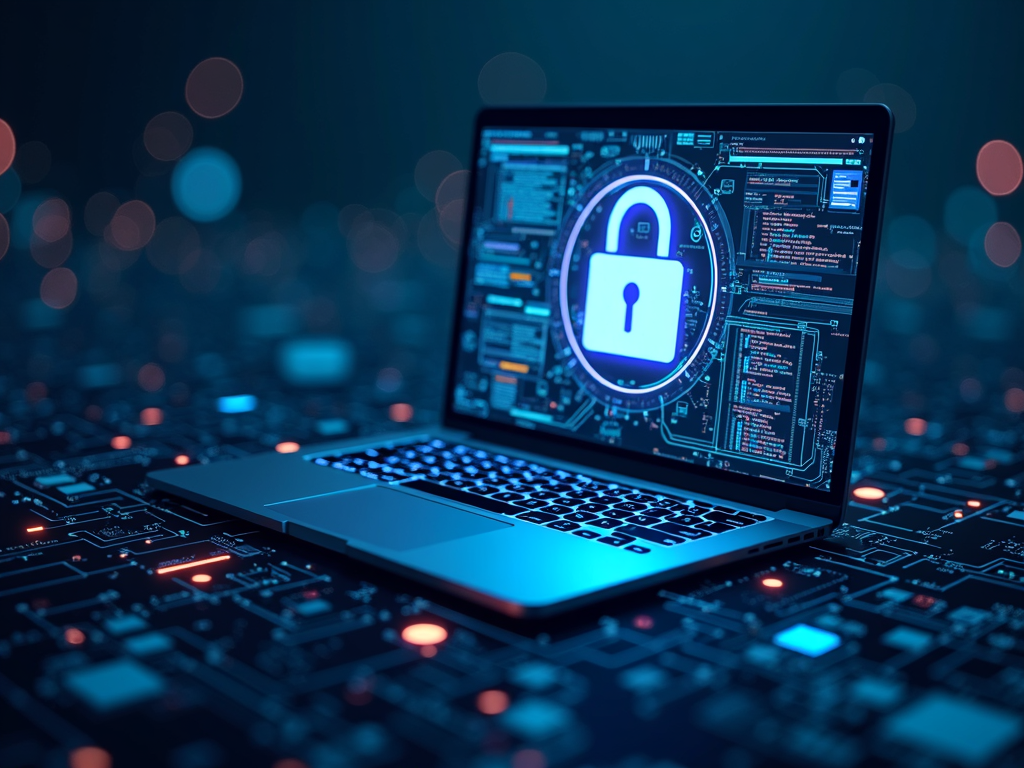Why Encrypted Email Is Worth It: Protecting Your Online Privacy
Overview:
In today's digital age, protecting your online privacy is more important than ever. Encrypted email is a powerful tool that can help you keep your communications secure. This article explores why encrypted email is worth it and introduces essential online privacy tools for beginners.
What Is Encrypted Email and Why Does It Matter?
Encrypted email is a method of sending and receiving messages that are protected by encryption, making it difficult for anyone other than the intended recipient to read them. Unlike standard email services, which often lack adequate security, encrypted email ensures that your personal information remains private. Without encryption, your emails can be intercepted by third parties such as internet service providers, governments, or cybercriminals. This can lead to serious consequences like identity theft, financial loss, and breaches of personal privacy.
Personal Insight: As someone who values privacy, I started using encrypted email after learning how vulnerable standard emails are. The peace of mind that comes with knowing my communications are secure is invaluable.

The Risks of Not Using Encrypted Email
When you send an email without encryption, it travels across the internet in plain text. This means that anyone with access to the network can read your message. Here are some risks you face:
- Data Breaches: Hackers can steal your personal information, leading to identity theft.
- Surveillance: Governments or corporations may monitor your communications without your consent.
- Financial Loss: Sensitive information like bank details can be exploited for fraudulent activities.
Actionable Tip: Always assume that your standard emails can be read by others. If you need to share sensitive information, use encrypted email or other secure communication methods.
Benefits of Using Encrypted Email
Encrypted email offers several key benefits that make it worth the effort:
- Privacy: Only the intended recipient can read your message.
- Security: Protects against interception and unauthorized access.
- Compliance: Helps you meet privacy regulations, especially for businesses handling sensitive data.
- Control: You decide who can access your information.
Personal Insight: Switching to encrypted email was a game-changer for me. I no longer worry about my personal conversations or business communications being exposed. It's a small step that makes a big difference.

Essential Online Privacy Tools for Beginners
If you're new to online privacy, starting with encrypted email is a great first step. Here are some user-friendly tools to consider:
| Tool | Features | Pricing | Ease of Use |
|---|---|---|---|
| ProtonMail | End-to-end encryption, self-destructing messages | Free (with paid plans) | Very easy |
| Tutanota | End-to-end encryption, encrypted calendar | Free (with paid plans) | Easy |
| Signal | Encrypted messaging and calls | Free | Very easy |
Why These Tools? These services are designed with beginners in mind, offering strong encryption without requiring technical expertise. They also provide additional features like encrypted calendars and self-destructing messages for extra security.
How to Get Started with Encrypted Email
Getting started with encrypted email is simpler than you might think. Follow these steps:
1. Choose a Service: Select a reputable encrypted email provider like ProtonMail or Tutanota.
2. Create an Account: Sign up for an account using a strong, unique password.
3. Set Up Two-Factor Authentication: Add an extra layer of security to your account.
4. Start Sending Secure Emails: Use the service to send and receive encrypted messages.
Pro Tip: When sending encrypted emails to someone who doesn't use the same service, you may need to set up a shared password or use a feature that allows secure communication with non-users.

Best Practices for Maintaining Online Privacy
While encrypted email is a crucial tool, it's just one part of a broader online privacy strategy. Here are some additional best practices:
- Use Strong Passwords: Create unique, complex passwords for each account.
- Enable Two-Factor Authentication: Add an extra layer of security to your accounts.
- Be Cautious with Public Wi-Fi: Avoid accessing sensitive information on public networks.
- Regularly Update Software: Keep your devices and apps up to date to protect against vulnerabilities.
- Limit Sharing Personal Information: Be mindful of what you share online, especially on social media.
The Future of Online Privacy: Trends and Predictions
As technology evolves, so do the threats to our privacy. Here are some trends and predictions for the future of online privacy:
- Increased Regulation: Governments are likely to implement stricter privacy laws, making tools like encrypted email even more essential.
- Rise of Decentralized Technologies: Blockchain and decentralized networks may offer new ways to protect privacy.
- AI and Privacy: Artificial intelligence could be used to both enhance and threaten privacy, depending on how it's applied.
Insight: Staying informed about these trends can help you adapt your privacy strategies and stay ahead of potential threats.

Summary
Encrypted email is a vital tool for anyone who values their online privacy. By protecting your communications from prying eyes, you can safeguard your personal information and maintain control over your digital life. For beginners, services like ProtonMail and Tutanota offer an easy way to get started with encrypted email. Remember, online privacy is an ongoing effort—stay informed, use the right tools, and follow best practices to keep your data secure.